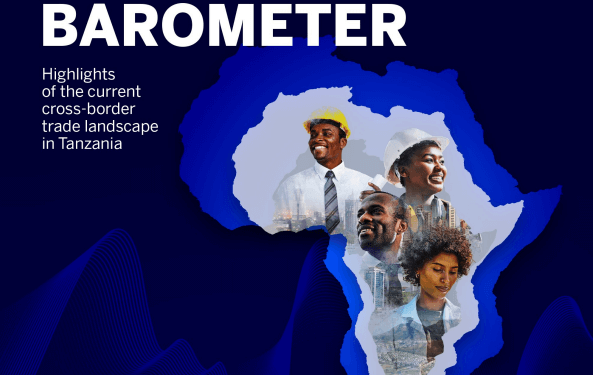Sentiment around the performance of the Tanzanian economy amongst surveyed businesses is mixed, with businesses exhibiting slightly more positive sentiments according to this year’s Stanbic Bank Africa Trade Barometer released recently.
According to the report, positive sentiments are likely a reflection of the improvement in Tanzania’s business climate in the past two years as a result of pro-business policies implemented by the Government which is believed to have restored the private sector’s trust and confidence in investing in the country.
“As a result the majority (94%) of businesses expect their revenue to increase over the next year due to the perception that demand for their goods and services will increase,” the report says.
The report further shows that on average, businesses in Tanzania continue to have positive perceptions on the role that the Government is playing to support cross-border trade activities.
Specifically, 47% of surveyed businesses perceive the Government to be supportive of their cross-border trading activities, relative to 18% who perceive the Government to not be supportive.

“This is most likely a reflection of deeper bilateral economic ties with other countries as well as improved activity within trading blocs such as the East African Community, as well as increased investment in infrastructure to facilitate cross-border trade with other African countries,” the report adds.
According to the report, Tanzania’s overall macroeconomic conditions are average, hence having a moderate impact on its overall tradability attractiveness.
Notable variables that have a positive impact on Tanzania’s tradability attractiveness include GDP growth, which has bounced back from the worst effects of the pandemic, and a relatively stable inflation rate.
On the other hand, a depreciating and volatile
Tanzanian shilling (resulting in imports becoming relatively more expensive) and depleting foreign currency reserves impact Tanzania’s tradability attractiveness negatively.
“With a rising import bill due to high oil prices, similar to most African countries has been experiencing foreign currency shortages, making it difficult for businesses to pay for their imports,” the report says.
Meanwhile, Tanzania’s position in the overall Stanbic Bank Africa Trade Barometer (SB ATB) ranking declined from fifth position recorded in September last year to seventh position this year, a new report shows.
This decline in the overall SB ATB ranking was driven by a decline in its ranking in the constituent Stanbic
Bank 3-Year Quantitative Trade Barometer (SB QTB) from position 6 in September 2022 to position 8.
The SB ATB was launched in 2022 with the intent of creating Africa’s leading trade index to address the information vacuum of reliable African trade data and to support and enable the growth of intra-Africa trade.
Availability of trade data remains a challenge across Africa and the SB ATB aims to fill part of this data gap through up-to-date survey data on the views of African businesses on the environment they operate in, their trade behaviour, trading activities and their perceptions on trade.







